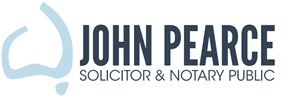This is dependent on the requirements of the country in which the notarised document is to be produced. For instance, if the notarised document is to be produced in a Commonwealth country such as Malaysia or Singapore, usually it can be forwarded to the Commonwealth country with no other steps involved. But for many other countries, after the notarisation step there is usually at least one other step required, and sometimes two steps.
For countries that are parties to the Hague Apostille Convention, there should only be two steps required, namely, the notarisation step, and then the affixation of an Apostille certificate by the Authentications Section of the Australian Department of Foreign Affairs and Trade (DFAT). The Apostille certificate certifies that the signature and seal of the Notary Public are authentic. But note that for some countries such as India, even though it is a party to the Hague Apostille Convention, sometimes there is still the requirement for consulate stamping by various Indian bureaucracies. The rule in all cases is: Check with the relevant authoritiy in the receiving jurisdiction as to what are its requirements.
Some countries are not parties to the Hague Apostille Convention which abolished the need to have consulate stamping. Therefore, if, say, the notarised document is to be produced in The People’s Republic of China or The United Arab Emirates or some other jurisdiction which is not a party to the Hague Apostille Convention, it will need to be taken after notarisation to the Authentications Section of DFAT. DFAT will apply an Authentication certificate which certifies that the signature and seal of the Notary Public are authentic. Then there is the requirement to take the notarised and authenticated document to the relevant Consulate or Embassy. In such instances, there are three steps.
Therefore, apart from notarisation, you need to check whether there are any more steps required before the notarised document will be acceptable in the country where it is to be produced.
In summary, if there is another step(s) required after notarisation, then an Apostille certificate or an Authentication certificate needs to be affixed to the notarised document, depending on whether or not the country in which the document will be produced is a party to the Hague Apostille Convention.
You can arrange a DFAT Apostille or Authentication certificate as follows:
1. BY BOOKING AN APPOINTMENT ONLINE
Go to the Smart Traveller Website.
Note: Usually your appointment will be a few weeks’ wait from the date of the booking, so Express Post might be more suitable, particularly if time is of the essence (see below). If you do choose to make an appointment, the appointment location is:
Australian Passport Office
Authentications Section
Level 2 Collins Square, 747 Collins Street,
MELBOURNE, VICTORIA 3000
2. BY EXPRESS POST
Download the Document Legalisation Request Form. Post the form and your document(s) to:
Australian Passport Office
Authentications Section
GPO BOX 2239, MELBOURNE, VICTORIA 3001
3. BY ENGAGING THE SERVICES OF THE OFFICE OF JOHN PEARCE SOLICITOR & NOTARY PUBLIC
Particularly in cases where time is of the essence, you might choose to pay, apart from the government fee of $87 for each Apostille or Authentication certificate, an administration fee of $165 for the OFFICE OF JOHN PEARCE SOLICITOR & NOTARY PUBLIC to arrange an Apostille or Authentication certificate for you. The turnaround time nowadays is several business days.
YOU DO NOT NEED TO COMPLETE ANY FORM IF WE LODGE YOUR DOCUMENT FOR YOU.
